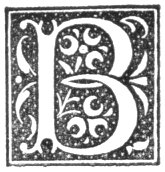
Sacred Texts Legends and Sagas Celtic Index Previous Next

 |
It was always accounted cowardly for two boys to attack one, hence the saying:--
In starting on a race, or in doing anything that required a little space to do it, when the onlookers were pressing too near, the cry was, "Gie ’im Scots room," which seemed to mean
about as much space as enabled him to toss both his -arms at full length around him.
In parts of Banffshire boys, on concluding a bargain, linked the little fingers of their right hands together, shook the hands with an up-and-down motion, and repeated the words:--
This ceremony was called "ringing the pottle-bell," and to break a bargain, after being sealed in this fashion, was regarded as the height of wickedness.
The following was current about Fraserburgh:--
Here is another solemn formula of bargain-making. When the bargain was struck the one said to the other, "Will ye brak the bargain?" "No," was the answer. "Swear, than," said the first. Then came this oath:--
[paragraph continues] If the bargain was broken, the doom of the breaker was looked upon as sure, and with awe.
Here is a shorter formula:--
[paragraph continues] With these words the buyer and seller drew the forefinger across the throat.
It was a maxim in the code of honour that if one made a gift of anything to a companion it was not to be asked back. If such a thing was done the taunt was thrown at him--"Gie a thing, tack a thing, the ill-man's bonnie thing."
The following are more explicit:--
[paragraph continues] And:--
Here is a shorter version:--
To act the informer was and still is looked upon as something very mean and cowardly, and one who was guilty of such all action led no pleasant life among his companions. Whenever he appeared for a time after giving the information he was hailed with the words:--
One convicted of lying was received among his fellows with the words of welcome:--
[paragraph continues] This shorter form was repeated again and again:--
If a boy or girl wished to get a share of any bit of sweetmeat or fruit from a companion, the eyes were shut, the hand was held out, and the words were repeated:
When one boy or girl made a present of "sweeties," lozenges, or such like, to another, if only one or two were given, the following words were repeated:--
A boy, when he finds anything that has been lost, cries out, "The thing it's fun's free," and, if he has a companion, he cries out "Halfs." It is considered that, unless the two cries are uttered almost at once, the boy who first speaks is entitled to the whole of the found property.
21:1 Cf. Henderson, p. 32.